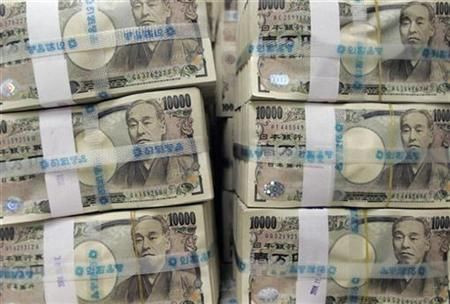S&P Affirms Japan’s Rating, Warns on Debt: Is the Country Ready to Face Bleak Economic Outlook?

Ratings Agency Standard & Poor's has affirmed Japan's sovereign debt rating at AA- along with maintaining its negative outlook as the country faces a dismal fiscal position.
S&P has stated that the ranking is supported by an ample net external asset position, relatively strong financial system and diversified economy. In addition, the yen is a key international reserve currency.
S&P has noted that Japan is the world's second-largest net external creditor in absolute terms, and it has projected net assets of an estimated 290 percent of current account receipts at yearend 2011. Also the country's current gold and foreign exchange reserves of over US$1 trillion are second only to China's.
On a positive note, S&P has reported that Japan's financial system appears sound compared with its counterparts in Europe and the U.S., backed by several years of restructuring and private sector deleveraging.
However, S&P has also warned that if medium-term growth prospects weaken, a downgrade is likely. S&P added that it would also consider lowering the long- and short-term ratings if the government's debt trajectory remains on its current course or begins to erode the nation's external position.
Taking special note of these aspects, S&P reports that Japan's sovereign ratings are constrained by the government's weak policy foundations, large fiscal deficits and high debt, as well as prolonged deflation and an aging and shrinking workforce. It is also possible for S&P to revise the outlook to stable if the government were to implement robust and sustainable fiscal consolidation.
Along with this report came the news that Japan posted a record trade deficit in January. The yen's strength and weaker global demand have eaten into profits of manufacturers. Also the nation is still in the process of recovering from last year's earthquake and tsunami. The trade deficit widened to 1.48 trillion yen ($19 billion).
The government borrows more than it gets in taxes and it has the highest debt-to-GDP ratio in the world. The Bank of Japan has been saying that such deficits cannot continue indefinitely. International Monetary Fund had reported to the G20 in last November that Japan's debt was on an unsustainable path, carrying risks to domestic and global stability.
The country is also affected by slow economic growth and deflation. Japan’s economy, the world’s third-biggest, shrank an annualized 2.3 percent in the fourth quarter, more than analysts estimated, after growing 7 percent in the previous three months. Prime Minister Yoshihiko Noda said last month that he expected the Bank of Japan to take bold policy actions to address the yen’s rise and fight deflation. The Bank of Japan’s stated goal is for consumer prices to rise between above zero and 2 percent over the long term, with a 1 percent objective for the time being.
© Copyright IBTimes 2025. All rights reserved.




















